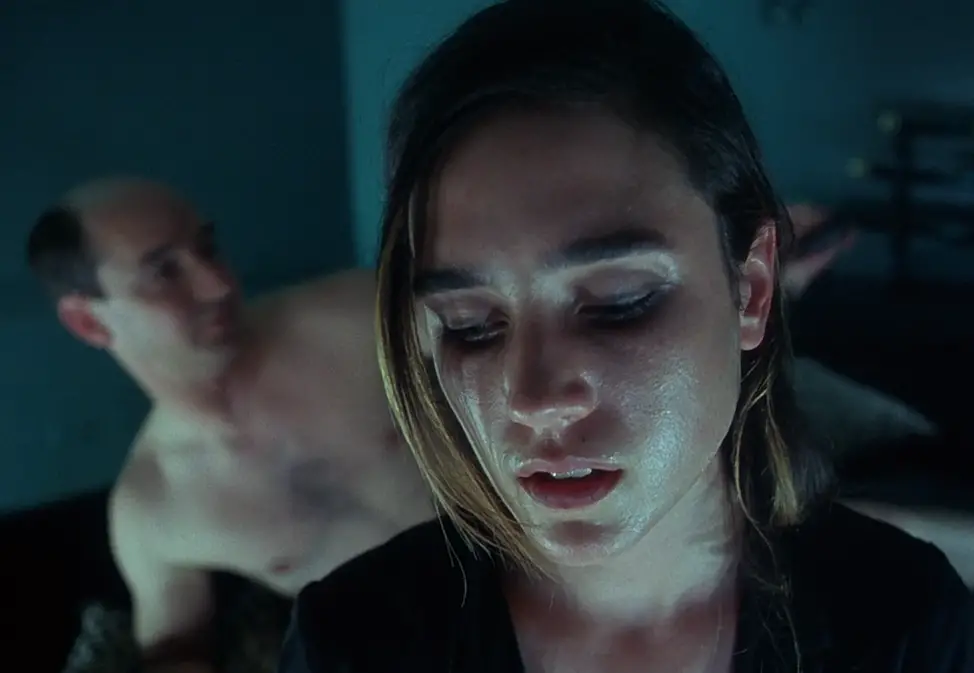Many artists claim to have a voice that defines a generation. But what if the true chronicler of the modern experience has no voice at all? With his electronic, instrumental work on film scores, Clint Mansell has produced an evocative sound that resonates not only with the stories that he’s scoring, but with a generation of people — people who work multiple jobs to pay their way through school and yet somehow wake up ready to face a new day.
I’m sure Clint Mansell never set out to write the soundtrack to our generation, but his haunting scores seem to have their number. As a result, his compositions are works you should know and should be paying attention to.
Alt-Rock Beginnings
Clint Mansell wasn’t always a soundtrack composer, however. He started his music career in England as an instrumentalist and lead vocalist for the alt-rock band Pop Will Eat Itself. His band eventually signed with the record label Nothing Records, owned by Trent Reznor of Nine Inch Nails. Mansell and Reznor became friends, when Pop Will Eat Itself and Nine Inch Nails toured together and Mansell performed some background vocals on Nine Inch Nail’s “The Fragile.”
It’s hard to say how integral Pop Will Eat Itself was for establishing Mansell’s sound, primarily because most people have never heard of them. But while it’s easy to write-off the connection between an alt-rock British indie band and the atmospheric scores that Mansell is known for now, it turns out it’s not uncommon.
Danny Elfman, the composer of “The Simpsons” theme song and the soundtracks for most Tim Burton movies, started out as the lead singer for the new wave band Oingo Boingo. Similarly, Jonny Greenwood, the composer of choice of American filmmaker Paul Thomas Anderson, was the guitarist and keyboardist of Radiohead. Trent Reznor himself composed the score for “The Social Network” and “The Girl with the Dragon Tattoo.”
Perhaps Mansell’s tone was aided by his earlier band work, or perhaps composing film scores is a process that is aided by the understanding of musical structures and industries provided by such band work. Nevertheless, since his musical origins, Mansell has set himself apart with his distinctive sound.
Aronofsky Collaboration
Clint Mansell is probably best known for his work on the soundtrack to the movie “Requiem for a Dream.” The movie is notorious for its dark themes and drug-addiction imagery, and Mansell paints the despair beautifully with his score. His work features weeping violins over industrial percussion, creating a sound that carries momentum and timelessness.
His most lasting legacy from the “Requiem” soundtrack is undoubtedly the song “Lux Aeterna.” The tune has been used as the background for trailers and advertisements things like the pop-bestseller “The Da Vinci Code”; an arrangement of the original song was even used for the trailer for “The Lord of the Rings: The Two Towers.” While you may not have set out to listen to a Mansell album straight through, it’s likely that even a casual involvement with the cinema will expose you to some of his work.
https://www.instagram.com/p/BqAQVWmFEn_/
However, it was the Aronofsky film “The Fountain” that first brought Mansell’s music to my attention. This soundtrack is less electronic, but Mansell works to craft intricate string melodies that dig deep and evoke complex feelings.
When his orchestral themes are repeated on piano for “Together We Will Live Forever,” the final song on the film’s soundtrack, I am spellbound. The atmospheric dread that backbones much of the score gives a sense of danger that dissipates when tapped out on the piano keys. I’m left with less of a sense of dread than I am of nostalgia and an intense desire to loop the track on repeat. (By Google Music’s count, I’ve listened to this song alone 118 times now.)
There’s a sort of out-of-time quality to many of Mansell’s scores — from “Requiem,” which sought to unmoor the viewer from a definitive time-period, to “The Fountain,” which explicitly took place in multiple timelines — that resonates, I feel, with the globally connected millennial, who holds an uncertain future. The resonant nostalgia that Mansell crafts with his scores is an emotion
Other Notable Work
Mansell’s work isn’t limited to the movies of Aronofsky, however. While he frequently collaborates with director Duncan Jones, who is notable for making the film “Moon” as well as for being David Bowie’s son, Mansell’s talents as a composer extend beyond his work with these famous directors. He scored the videogame “Mass Effect 3,” the Ryan Reynolds rom-com “Definitely, Maybe” and even contributed to Netflix’s “Black Mirror” series, producing the soundtrack to the episode “San Junipero.”
I’m out of my depths describing some of these works, because, unlike “Moon” or “The Fountain,” I haven’t seen other media complemented by Mansell’s soundtrack. My knowledge of “Mass Effect 3” and “Definitely, Maybe” is limited to the aural picture painted by the score. That might mean that I can speak with very limited authority about how well Mansell’s work suits the movie it’s made for, but should speak volumes about how compelling the music is on its own.
Recent Work
Though I’ve listened to Mansell’s scores for almost a decade and a half now, it was his recent work on the film “Out of Blue” that brought the artist back to my attention.
“Out of Blue” contains more of a jazz beat than can be found in other examples of Mansell’s work, with the odd snare and cymbal hit augmenting the atmospheric world-building. But this soundtrack still contains the same tonal features of nostalgia, haunting but not wallowing in sadness, that seem to define Mansell’s work. His percussive strings and driving beat hint at action while the echoing melodies resituate his score in the melancholic mundane.
Moments of his soundtrack for “Out of Blue” can feel derivative; however, this rarely detracts from the impact of the score. “Parallel Universe” suggests the themes of “Lux Aeterna,” enough to feel like a call-back for the in-the-know without re-treading ground.
As with many of the films that Mansell has scored, I haven’t watched this movie (though honestly, it sounds right up my alley). Still, I’ve already listened to the entire album nearly two dozen times. Like much of Mansell’s music, the score speaks to me even without a narrative to define it.
The Sound of a Generation
Bombastic, brassy music has its place — it evokes the bright primary colors of superheroes or the battles of a space opera. But not every story is lens flares and lasers; some tales need the atmospheric backdrop of a minimal, tonal score. It’s in these areas that Clint Mansell excels, defining subtle leitmotifs and evocative melodies that can be film-defining, but stand well-enough on their own too.
For a generation defined by technological advancement, increasing wariness toward AI, decreasing job prospects and skyrocketing costs-of-living, Mansell’s electronic and dystopic scores feel like a fitting soundtrack to not just fiction, but real life. They aren’t bleak, but they aren’t hopeful either. Mansell’s work underscores the actions of drug addicts and the pitfalls of technology, of intellectual progress and breakdowns, and as such seems to highlight real, human problems that are faced every day — addiction, technology, success and failure.
There’s never been a more fitting musical description of the millennial experience than the work of Clint Mansell.










